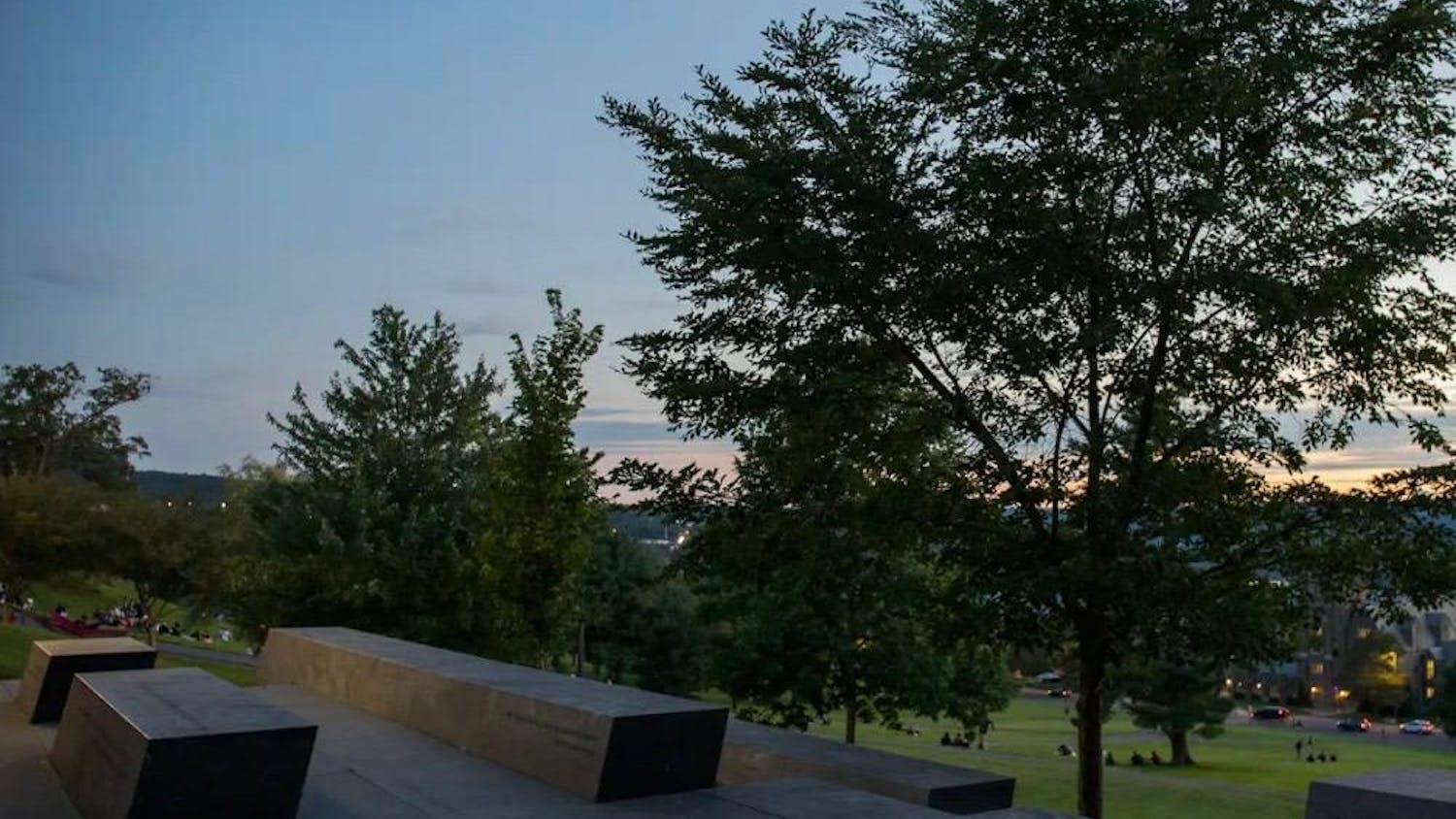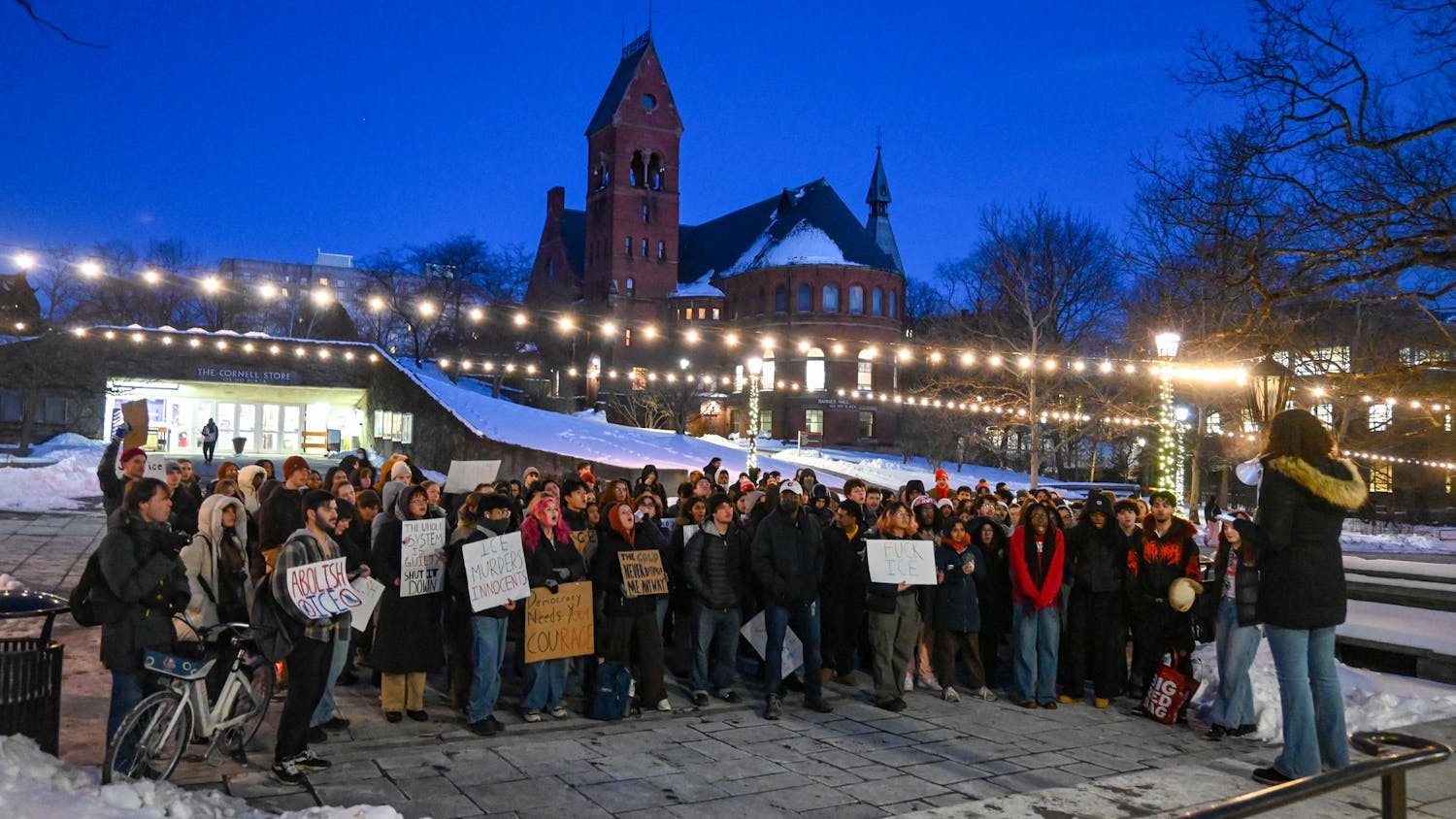After two years of on- and off-again work, the revised campus code of conduct — the document that dictates Cornell’s judicial proceedings — finally has a deadline: Dec. 7.
Addressing the University Assembly on Tuesday, Oct. 20, President Martha E. Pollack laid out a strict timeline for the final approval of the code, allowing for a month of community input before sending it to the Board of Trustees for final approval.
“I have to tell you,” Pollack said, “there is no slack in this schedule.”
Before the final due date of Dec. 7, the code will be open for public feedback — inviting members of the Cornell community to weigh in on the changes already made until Nov. 17.
The campus code of conduct, which currently applies to faculty and employees as well as students, will become a student-specific code of conduct — leaving Princeton University as the only Ivy League school with a community code of conduct.
This change was owed to the “vanishingly small” number of faculty and staff that were involved in code violations compared to students — 4 out of 820 — according to Pollack, who said there were “contortions in the [code’s] language to make it fit all three of these cases.”
The judicial process involves any student who violates the code of conduct, which can mean anything from alcohol possession to assault. From 2018 to 2019, the Office of the Judicial Administrator — in charge of investigating such cases — reported 820 cases of code violations by students, of which 377 were found responsible.
Revisions to the code have been in the works for the past two years by the Codes and Judicial Committee, although numerous delays and disagreements with the University ultimately gave the final say to University lawyers.
The code of conduct had been identified as too “legalistic” by the 2018 Presidential Task Force on Campus Climate, and revisions officially began in January 2019, but were delayed by changes to the leadership of the CJC.
It was only in April 2020 that the CJC, under chair Joe Anderson ’20, was finally able to make headway on a draft of the code.
The most salient issue discussed was whether to recommend a reduction in the standard of proof needed to find the accused responsible in judicial proceedings, from the previous requirement of “clear and convincing” — which means the evidence must be “highly and substantially more likely to be true than untrue” — to “preponderance of the evidence,” a lower standard meaning the infraction had more likely than not occurred.
Ultimately, the CJC decided to compromise, using separate standards of proof depending on the severity of the code violations. Its draft was delivered to the U.A. to examine in early May.
However, in a May 8 email to the U.A., Pollack rebuffed the changes made to the code, calling the standard of proof “not congruent” with federal Title IX regulations. The revision process was then upended yet another time when Pollack handed over the responsibility of reworking the code to University Counsel Madelyn Wessel.
Under the University Counsel’s draft, the standard of evidence has been left for the community to decide. The most important issue, Wessel said to the U.A., “is to provide feedback and help come to a decision on what the standard of evidence should be for the student code.”
Wessel also addressed a common request — to document every single change made in the code in the past months to benefit observers unfamiliar with the code. She declined, citing the difficulty of accounting for these revisions.
“I’ve got to be honest with you that I just can’t do it,” Wessel said.
Pollack underscored the importance of public additions to the code, promising to take them into account in the final draft sent to the trustees.
“I feel like we’re finally in the home stretch. We will obviously give full respect to the comments that come in,” Pollack said. “We have no interest in doing something that is opposed to what the community wants.”

Code of Conduct Revisions Due By December, Pollack Says
Reading time: about 4 minutes
Read More










